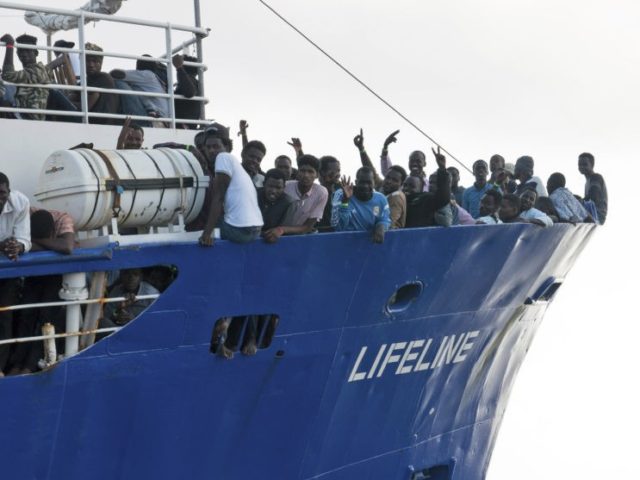ROME — Italy has witnessed a remarkable drop in new migrant arrivals in 2018, with numbers for the first half of the year 80 percent lower than over the same period last year.
According to data released Monday by the United Nations immigration agency (UNHCR), a total of 16,919 migrants have arrived by sea into Italy this year as of July 8, whereas over the same period in 2017 a total of 85,197 migrants had arrived.
Unsurprisingly, the number of migrant deaths in the central Mediterranean Sea has also decreased significantly, falling from 2,258 to less than half that, or 1,058, in the same six-month period. The drop in migrant sea deaths due to more stringent immigration policies demonstrates that tougher immigration regulation in these situations helps save lives, contrary to the fallacious argument to the contrary.
The total number of migrants lost at sea reached its highest point in 2016, with 4,578 migrants declared either dead or missing. That year also marked the record number of migrants arriving across the Mediterranean onto Italian shores, a total of 181,436, UNHCR revealed.
Discouraging migrants from attempting the perilous crossing has proven to be the most effective remedy to the high number of migrant sea deaths, addressing the concern of Pope Francis that the Mediterranean was becoming a “vast cemetery” for migrants.
The dramatic drop in migrant arrivals began with accords made last summer between Italy and the Libyan coast guard to prevent NGOs from picking migrants up off the coast of that nation and has been further fueled by the new populist government’s hardline stance against illegal immigration and its resistance to the infamous NGO “shuttle service” from North Africa.
Interior Minister Matteo Salvini, who according to recent polls is Italy’s most trusted politician, ran for office last March on a platform centered on regaining national sovereignty and effectively addressing Italy’s mass migration problem.
In early June, Salvini announced a three-point immigration reform program, which included increasing the number of repatriation centers for housing immigrants, reducing the number of arrivals by stricter border control, and streamlining the deportation process for those who have no legal right to be here.
Last year, Salvini described the migrant crisis as an “invasion” that was being orchestrated by Brussels, after European Union (EU)-backed NGOs were accused of working with people smugglers.
“You can’t any longer speak about immigration but about an invasion organised, funded and planned by Brussels with the complicity of Rome,” Salvini said in May, 2017.
At that time, several NGOs and non-profit charities were under investigation for allegedly exploiting migrants and colluding with human traffickers and the mafia.
Several organizations were accused of arranging to meet migrant boats just a few miles off the African coast to shuttle them to Italy and of accepting bribes from criminals.
Follow Thomas D. Williams on Twitter Follow @tdwilliamsrome

COMMENTS
Please let us know if you're having issues with commenting.